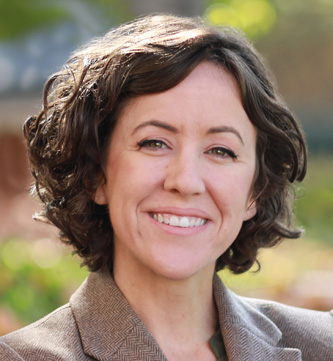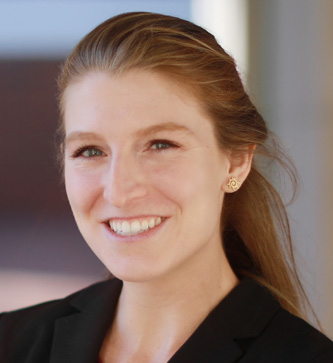After serving time for riding in a car where a gun was found, Charlottesville civic leader Whitmore Merrick Jr. decided he needed his Second Amendment rights restored in order to lawfully possess a firearm in his own right.
While working with Charlottesville’s Home to Hope program, Merrick and his colleague Shadee Gilliam explained this common legal dilemma to students from the Decarceration and Community Reentry Clinic at the University of Virginia School of Law to shed light on the real-world issues people face after prison.
Merrick and Gilliam work as reentry peer navigators — that is, they help people who are released from prison learn how to navigate their return to communities. Among other issues, because those convicted of felonies are generally prohibited from carrying firearms or even pepper spray, they are in constant jeopardy of being re-arrested — not only if they act in self-defense, but also if they ride in a car with a gun owner, live with a gun owner or visit someone who has a gun in their home. (The legal term for being caught in the presence of guns is “constructive possession,” and it is a felony in some states.)
The students decided to help Merrick, Gilliam and others petition Virginia circuit courts to restore their right to bear arms.
“It meant a lot to me because I’ve been defeated in the court system so many times, so I had lost a lot of confidence in the system,” Merrick said. “That was very, very helpful to have someone from the outside to assist me in going back in there.”

Professor Kelly Orians, the clinic’s director, is a former public defender who said cases like Merrick’s have forced her to reconsider her own attitude toward gun laws. Merrick’s cycle of legal trouble was set off by a conviction for marijuana possession, which barred him from possessing or constructively possessing a firearm.
“I’m someone who’s never had to think about taking up arms to defend myself, but after working with people who live in very dangerous neighborhoods with a very high rate of gun violence, I’ve had to really understand the reality of what it looks like to be vulnerable in a community where almost everyone has a gun except for you,” Orians said. “It puts a target on your head, and it affects where you can go and with whom. They cannot confidently get into somebody else’s car or even go to somebody else’s house without definitively knowing there’s not a gun present because they know they are risking arrest and mandatory minimum sentences for illegal gun possession.”

With the assistance of clinic student Meredith Kilburn ’23, Merrick’s Second Amendment right was restored May 17. Gilliam’s was restored May 26.
On Merrick’s behalf, Kilburn submitted a 33-page petition to the Charlottesville circuit court, including letters of support from city employees and the parent educator at a local nonprofit that, among other things, helps men become better fathers after their release from jail. Merrick volunteers at that nonprofit, ReadyKids, and became a board member in 2021.
“All the clients we worked with were absolutely phenomenal people,” Kilburn said.
Helping them regain firearm rights “didn’t even feel like a hard issue for me, because it was clear they deserve every right that every other citizen has, because they do just as much — if not more — for Charlottesville and the community than other people who do have all their rights,” she said.
Merrick, for instance, has put his incarceration and reentry experience to constructive use, by mentoring others. In addition to volunteering at the REAL Dads program at ReadyKids, he founded the Freedom for Felons movement to provide opportunities to formerly incarcerated people who are reentering society, and he hosts a podcast highlighting success stories among this population. Gilliam, serves on the District 9 Re-Entry Steering Committee, works at the Home to Hope program (which provides job training to the previously incarcerated) and volunteers with the Thomas Jefferson Area Crisis Intervention Team.
The Decarceration and Community Reentry Clinic aims to create more of these success stories. With 45,000 laws in the United States regulating people living with convictions — including where they can live and work, how they can engage in the financial sector and with friends and family, and what resources they can access — the need is great.
“Over 13 million people cycle through jails and prisons every year. Incarceration has a severe impact on someone’s ability to access stable housing, reconcile with their family, access gainful employment, access financial services and participate in our democracy,” Orians said. “On a community level, although incarceration is supposed to make our communities safer, it can sometimes make them less safe by fragmenting them — it can remove community leaders and primary breadwinners, and tear apart families.”
The clinic will have 11 students this fall, up from seven last year. Three of the students will, like Kilburn, have permission from the Virginia State Bar to appear in court on behalf of clients. The clinic will continue working on a clemency petition for a woman who was sentenced as a teenager to life in prison, and it is representing three people who are eligible for early release in Washington, D.C. Students are also working to resolve consumer debt for a number of clients.
But the clinic’s work goes far beyond litigation.
They are working with the nonprofit Sistas in Prison Reform to help the organization advocate for a “Second Look Law” in Virginia, to allow rehabilitated prisoners to petition for resentencing; they are collaborating with ReadyKids’ REAL Dads program to create self-help guides for resolving family law matters that arise with incarceration; and they are helping Resilience Education build an online platform to help job seekers identify and overcome barriers that come with their felony records.
Kilburn, who graduated in May and is pursuing a career in public interest law, said she valued the opportunity to work collaboratively to identify and address a local issue.
“These community members expressed this need that wasn’t being addressed in the legal services market, and we were able to fit the clinic to what the community needed,” Kilburn said. “I think that really embodied the community lawyering theories I had learned about at UVA Law.”
Founded in 1819, the University of Virginia School of Law is the second-oldest continuously operating law school in the nation. Consistently ranked among the top law schools, Virginia is a world-renowned training ground for distinguished lawyers and public servants, instilling in them a commitment to leadership, integrity and community service.


